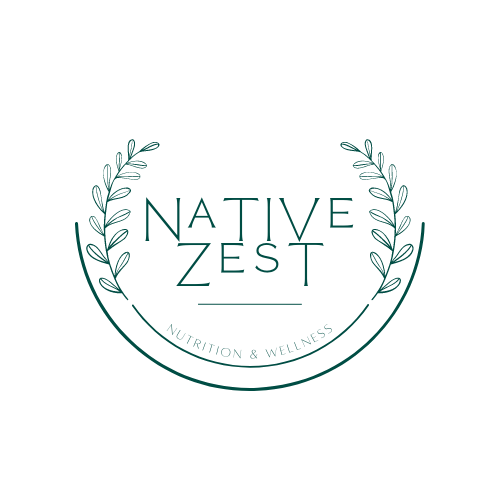
What’s the Difference?
There are many different natural healing professions. This article is intended to help clarify the differences between them, sans biases.
While there are different education requirements for these professions, it takes a team, and each play an important role in the natural healing community.
What Does Natural Medicine Mean?
Natural medicine is a system of care focused on preventative medicine. When it comes to treating health condition, these modalities investigate and treat the root cause as opposed to the symptoms.
The holistic approach is one that considers all aspects of a human being; the physical body, mind, emotions, and spirit.
Naturopathic Doctor
A Licensed ND is trained to heal the body through natural means; they can write prescriptions and diagnose. This degree requires a 4-year in-residence doctoral program approved by the Council on Naturopathic Medical Education (CNME).
At least 1,200 hours of supervised, clinical training is required.
The curriculum is similar to conventional medical school consisting of biomedical sciences, and in addition, clinical medicine, homeopathy, botanical medicine, nutrition, pharmacology, radiology, and physical medicine.
The final step to become a Licensed ND is to pass the two-part national board exam, Naturopathic Physicians Licensing Exam (NPLEX).1
The 5 key principles of the Naturopathic Physician’s Oath:
- First of all to do no harm
- To act in cooperation with the healing power of nature
- To address the fundamental causes of disease
- To heal the whole person through individualized treatment
- To teach the principles of healthy living and preventive medicine
*Important note: a “traditional naturopath” is not able to prescribe or diagnose. This occurs in states where naturopathic medicine is not yet regulated and traditional naturopaths are allowed to call themselves NDs, which naturally leads to a lot of confusion.
Doctor of Chinese Medicine
This degree requires a 4-year in-residence doctoral program.
This practice is thousands of years old. The concept is that a force of life, called Qi, resides in our body and an imbalance in Qi can cause disease and illness. You’ve probably heard of yin and yang, which are the opposite and complementary forces of the Qi.
Traditional Chinese Medicine seeks to restore balance of an individual’s Qi.
Treatments include Acupuncture, Cupping, Massage, Herbal remedies, and Tai Chi.2
Tai Chi or Qigong Instructor
Tai chi uses postures, gentle movements, mental focus, breathing, and relaxation to improve quality of life.
Functional Medicine
A biology-based approach that also addresses the root cause(s) of a disease or condition as opposed to symptomatology. Functional medicine factors in an individual’s genes, environment, and lifestyle.
According to the Institute of Functional Medicine – “The functional medicine model is an individualized, patient-centered, science-based approach that empowers patients and practitioners to work together to address the underlying causes of disease and promote optimal wellness.”3
Nutritionist vs. Registered Dietitian
Nutritionists & Certified Nutrition Specialists
A master’s or doctoral degree is required.
They are not generally regulated by state and certification comes from Certification Board for Nutrition Specialists.
Keep in mind that because Nutritionists aren’t strictly regulated, anybody can call themselves a Nutritionist. I recommend always checking credentials and requesting to see the individuals degree if you aren’t sure.
Official certification (CNS) requires an additional 1,000 supervised hours, a passing score on the CBNS exam, and completion of 75 continuing education credits every 5 years to maintain.
Registered Dietician
Bachelor’s degree is required, and dietitians must be registered. RDs are required to complete a 1-year internship, generally in a health care facility, food service company, or hospital.
RDs are regulated by state and standards are set by the American Dietetic Association.4
Both professions seek to provide individualized care but often you will see RD’s in a hospital while Nutritionists tend to work in smaller clinics or out of their own office.
Health Coach
Technically speaking, a college degree is not required to become a Health Coach, however, most have one and gyms and wellness centers require a certification from a school and/or organization.
Health Coaches generally specialize in guiding individuals toward their health goals by helping them discover where changes can be made and how it can fit into their lifestyle. Health coaches have less of a clinical approach and more consulting approach.
All of these professions are essential to the health and wellness community. It takes a team.
References:
- AANMC. The Difference Between a Traditional Naturopath and a Licensed Naturopathic Doctor in North America. AANMC. https://aanmc.org/news/difference-between-traditional-naturopath-and-licensed-naturopathic-doctor/. Published June 19, 2019. Accessed December 12, 2019.
- Chinese Medicine. https://www.hopkinsmedicine.org/health/wellness-and-prevention/chinese-medicine. Accessed December 12, 2019.
- The Institute for Functional Medicine | Information and educational seminars and conferences on functional medicine. The Institute for Functional Medicine. https://www.ifm.org/. Accessed December 19, 2019.
- Nutrition Specialist Education Requirements and Career Info. Study.com. https://study.com/nutrition_specialist.html. Accessed December 12, 2019.


